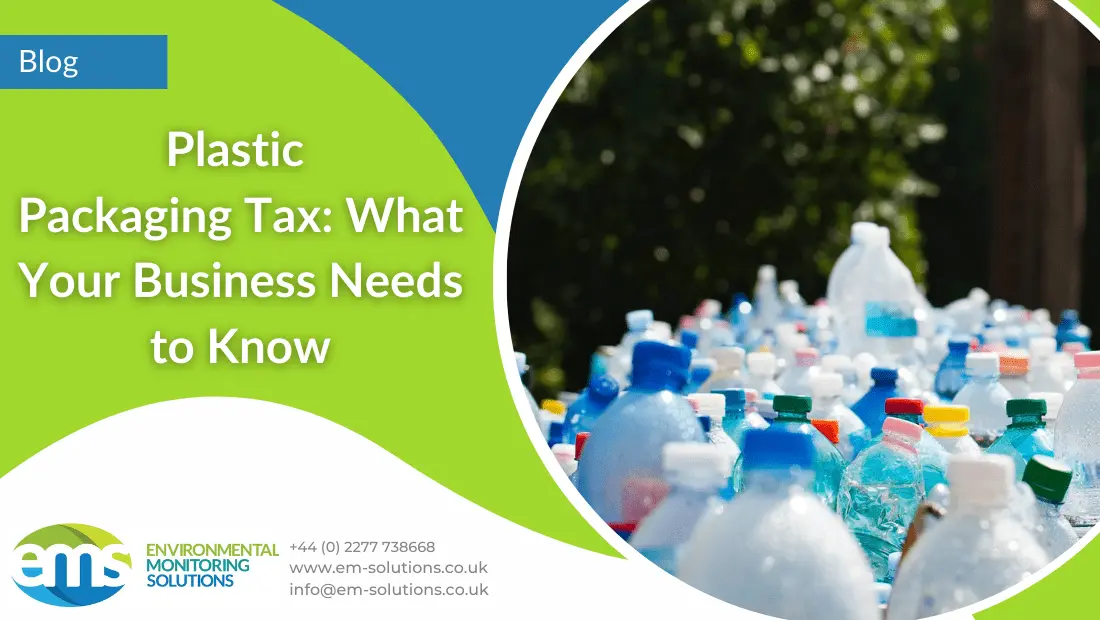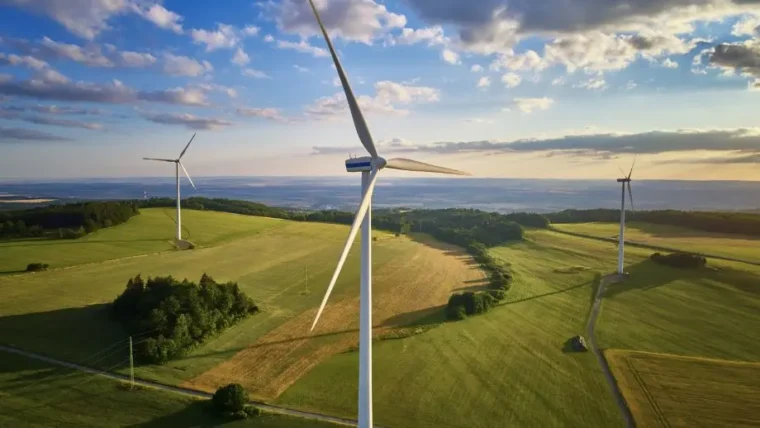The Plastic Packaging Tax (PPT) – What Your Business Needs to Know
2 March 2022

The plastic packaging tax will affect UK businesses who produce or import plastic packaging. Will this impact you?
It can be confusing to understand, so in this blog we are giving an overview of the tax, including when it will come into force, how to know if it applies to you and how to prepare for it.
Why is the Plastic Packaging Tax Important?
Plastic production is expected to double in the next 20 years, according to a report issued by the World Economic Forum. The point of the plastic packaging tax is to provide a clear incentive for companies to use recyclable material in packaging, diverting plastic away from landfill or incineration. Incinerating plastic has been shown to increase the risk of heart disease, make respiratory ailments such as asthma and emphysema worse, and can cause rashes, nausea, or headaches. (ScienceDirect.com)
Plastics degrade into increasingly smaller pieces over time and, due to rainfall and surface runoff end up in our environment from landfill. This is particularly concerning as microplastics are established endocrine disruptors. (endocrine.org)
Who does the Plastic Packaging Tax apply to?
The tax applies to UK producers and importers of plastic packaging in the UK.
How will the Plastic Packaging Tax work?
The plastic packing tax comes into effect 1st April 2022.
The tax is £200 per tonne of waste that is not at least 30% recyclable.
You need to register for the plastic packaging tax if you manufactured or imported 10 or more tonnes of finished plastic packaging components within the last 12 months or will do so in the next 30 days. More information is to be released on how it will function after this date.
The plastic packaging tax only applies to manufacturers and importers of plastic packaging components which contain less than 30% recycled plastic.
Packaging that contains multiple materials but contains more plastic by weight than any other single substance will be a plastic packaging component for the purposes of the tax.
For packaging components that are manufactured and imported into the UK, the weight of the packaging component must be recorded in metric values (kilograms) along with the percentage of recycled plastic content. You still must count the amount of recycled plastic you produce as this still counts towards the ten tonnes. (gov.uk)
Plastic Content
When talking about the plastic packaging tax, “plastic” includes biodegradable, compostable and oxo-degradable plastics.
Additionally, each packaging component needs to be considered separately. As an example, for plastic drinks bottle you would need to consider the bottle itself, the lid, and any plastic label separately.
What is “Finished Packaging”?
The tax will only apply to packaging that is considered finished – or had its last substantial modification before that component is packed or filled. Any process that changes the shape, thickness, weight, or structure of a packaging component will be considered a substantial modification.
Am I Exempt?
There are 3 types of products excluded from the tax. These do not need to be included when working out the total weight of packaging manufactured or imported.
They are products which are deigned to be:
- used in the long-term storage of goods
- an integral part of the goods
- reused for the presentation of goods
The producer or importer will need to be able to prove to HM Revenue & Customs (HMRC) that a packaging component which contains plastic is not subject to the tax.
If they cannot demonstrate this, the item will be treated as entirely plastic. Records will need to be kept as to the materials used in the manufacturing of the packaging and the weight of each material.
Even if the exemption applies, it is necessary to include exempt packaging in assessing whether more than 10 tonnes of plastic packaging is manufactured or imported in a 12-month period to establish whether the business needs to register for the tax.
Medicines and the Plastic Packaging Tax
Plastic packaging manufactured or imported for use in the immediate packaging of a medicinal product is exempt from PPT. For these purposes, a ‘medicinal product’ is either any substance or combination of substances:
- presented as having properties of preventing or treating disease in human beings.
- that may be used by or administered to human beings with a view to restoring, correcting, or modifying a physiological function by exerting a pharmacological, immunological, or metabolic action, or making a medical diagnosis.
Veterinary medicines are not exempt. (gov.uk)
How do I get my business ready for the plastic packaging tax?
- Assess whether you will be liable for the PPT by familiarising yourself with the information available on gov.uk or contacting HMRC
- Decide upon the members of staff who will be accountable for PPT compliance and train staff to be aware of the new rules
- Ensure that you have systems in place to maintain compliance with new record-keeping requirements
- Review your supply chains to pinpoint where efficiencies can be made
How will you be preparing your business for the tax? Let us know on LinkedIn or Twitter.









